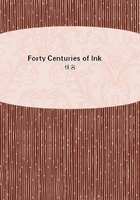
第49章
He submitted a modified formula to be employed in the manufacture of an official or standard ink. It was adopted and such an ink is without exception now used by all recording officers of both Massachusetts and Connecticut.
In 1901 the United States treasury department adopted a similar ink except that it permitted the introduction into it of an unnamed blue coloring material.
Early in 1894 and during the legislative session of the state of New York, after consultation with General Palmer, the then secretary of state, I prepared a bill somewhat on the lines as laid down in the Massachusetts statute. The press all over the state at once took up the matter and urged that some such measure should be enacted into law. A New York City newspaper discussed it as follows:
"A bill is to be introduced in the legislature this week, probably to-morrow night, providing for an official ink to be used by every public officer throughout the State of New York in the writing of public documents and in making entries in the records.
"The official ink is for the purpose of making public records permanent and to guard against fraud by the alteration of the records. As the law stands at the present time in the state every official, whether municipal, county or state, is allowed to purchase and use for the records of his office whatever ink he may choose. The consequence is that there is no uniformity in public records throughout the state, and entries, transcripts and certificates are written with hundreds of various kinds of inks.
"The serious part of the business, however, is the evanescent character of some of the kinds now used, especially of the cheaper grades. These are the inks made from aniline and other dyes which are held in solution in water. Such inks are made from a fine, cheap powder, of which nigrosine is used in making black inks, eosine for red, and methylene for blue ink, and they cost only a few dimes a gallon to manufacture. The writing made with such inks quickly dries by the evaporation of the water, when it merely requires the application of a little soap and water to wash them out, leaving the paper absolutely clean, besides being fugitive.
"It is said that as a result of the present lack of system in this matter there are now public records of the city of New York in which the ink has entirely faded. These records have been made within the past forty years, and are now worthless because of the character of the inks originally used.
"In the Police department of this city a blue ink is often used which is made from prussian blue. A large portion of the entries in the books of the Police department are made with ink of this kind, and the warrants and other public documents with which the police have to do are similarly written.
"A little soap and water will wipe out this writing, so that the record can be easily altered at any time. The use of this ink in the Police department is said to date from the time of Tweed, which is significant of the original purpose for which it. was adopted.
"A permanent writing fluid such as it is now proposed to adopt throughout the state would not only secure uniformity in the character of the inks used, but it would also throw many obstacles in the way of altering the records.
"The present Secretary of State is heartily in accord with the proposed legislation. He was seen last week by Mr. David N. Carvalho, who has made a life study of the subject and who drew the bill and is pushing the reform.
"Mr. Carvalho said yesterday: 'This ink, whose use it is intended to secure in the making of public records in this state, is more costly than those made from aniline and other dyes, which fade and wash. In it the black particles are suspended in water by the addition of gum. This kind of ink has an affinity for oxygen, and hence it oxidizes and turns black. When unadulterated it only becomes blacker with the passage of time, and cannot be washed from the paper by the use of water.'
" 'I could show you,' continued Mr. Carvalho, 'public records of this city made within forty years which are entirely illegible and consequently worthless, because cheap inks were used in the writing. These include not only records of wills in the Surrogate's office, but entries and transfers of real estate which are likely to come up in the course of litigation at any time, thereby affecting the rights of many citizens.